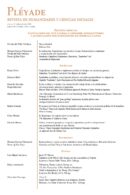Capitalist “Landnahme”, Labor Precarization and Post-Neoliberal Reversal in Argentina

Published 2016-12-26
Keywords
- Landnahme,
- Argentina,
- Precarization,
- Colonization,
- Neoliberalism
How to Cite

This work is licensed under a Creative Commons Attribution-NonCommercial 4.0 International License.
Abstract
Applying Klaus Dörre’s concept of captalist Landnahme (colonization) the article investigates the shifts in Argentina under the neoliberal hegemony during the 90s in the labor area and to what extent they were reverted during Kirchnerism (2003-2015). The analysis focuses on two trends of precarization: the outsourcing of production and services and the informalization of labor relations. The article then reviews the Kirchner period, characterized by efforts to reverse these processes through reforms of re-regulation and formalization of labor. The article supports the thesis that the Landnahme processes of the 90s in Argentina caused structural changes in society which can be considered as the continuation to a structural dependent development of the region and that could not be completely reversed during Kirchnerism. It is possible to understand the Argentine precarious process of the 90s as a direct consequence of a particularly radical Landnahme process of the social that promoted the persistence of a fragmented labor market in a semiperipheral context with extreme external economic dependence. The analysis is based on literature and available statistics, accompanied by qualitative data.